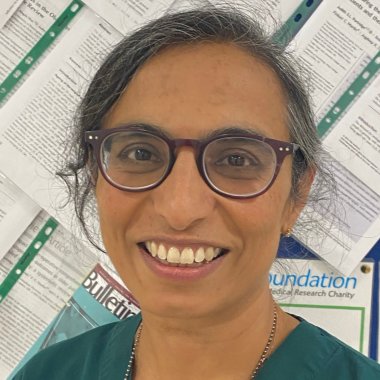16 February 2022
Ahead of our first Primary Care webinar of 2022, Events Officer Wenda Aitchison caught up with Dr Jugdeep Dhesi*[pictured] to learn more about an award-winning service that was the first of its kind in the UK.
Twice as many older people undergo operations compared to younger people but they have worse outcomes. Whilst older people have much to gain from surgery both in terms of symptom relief and survival, they are at higher risk of postoperative complications, long hospital stays and poorer recovery, at financial cost to health and social care systems.
These issues are likely to be exacerbated by the pandemic, with many patients having had a deterioration in long term conditions and experiencing frailty and mental health issues while waiting for surgery.
In the context of these issues, a new service was established at Guy’s and St Thomas’ NHS Foundation Trust (GSTT) in 2003, perioperative medicine for older people undergoing surgery (POPS). POPS is an award winning, geriatrician-led service that Is the first of its kind and is now a key part of the whole perioperative pathway from preoperative clinic until discharge following surgery at GSTT.
Can you introduce us to perioperative medicine for older people undergoing surgery (POPS)?
The POPS team sees elective surgical patients who have co-existing multiple medical conditions, frailty, and/or those who face difficult decision making around their surgery.
The focus is not just on pre-operative assessment but on optimisation, ensuring that all medical, psychological, social and functional problems are optimised to minimise the chance of complications in the perioperative period.
The same pre-operative assessment and optimisation approach is also used on the wards for patients admitted as emergencies. In both the elective and emergency setting, there is a focus on shared decision making; gaining an understanding of what is important to the patient, and ensuring that medical, surgical and functional risk is accurately assessed and communicated.
Working with surgical, anaesthetic and other colleagues, such an approach to shared decision making allows patients to receive all the information they need to make the right decision for them about their treatment.
The team follows the patients through their elective or emergency surgical journey on to the surgical wards. In partnership with surgical teams, POPS proactively identify and manage medical problems, promote rehabilitation, and support timely, safe and effective discharge planning.
Why are POPS services needed?
POPS services have been shown to reduce complication rates, hospital length of stay and have also been shown to be cost effective.
POPS services are needed now more than ever due to the pandemic and its effect on waiting lists, to streamline the care of the most high-risk patients and to ensure that time spent on waiting lists is used wisely for optimisation. This change in perspective from waiting list to preparation list will allow us to support our patients to become healthier, improve their outcomes, and utilise limited resources most efficiently.
How have POPS services developed in south east London?
The POPS team at GSTT have developed numerous resources to support the rollout of this approach; clinical resources, education and training packages, and support for business plans.
We are now partnering with NHS Elect networks to systematically scale up the service. Having established the service at a number of locations including Darent Valley and East Kent, we are now working with colleagues at King’s College Hospital NHS Foundation Trust and Lewisham & Greenwich NHS Trust to establish POPS.
We hope that through this work we can ensure equitable access to care across the sector.
You are presenting at the next King’s Health Partners primary care webinar on POPS – can you give us a preview of what attendees will hear?
At this webinar we will describe in more detail why this service is essential if we are to address surgical recovery, and the steps we are taking to achieve this.
We will consider how the perioperative pathway starts in the community and ends in the community and as such why we need to work with primary and secondary care colleagues to develop a joined up, seamless approach which has the patient at its centre, rather than the specialty.
Want to find out more? Please join us for the free King’s Health Partners Primary Care Webinar series on POPS at 1pm on Wednesday 30 March.
* Dr Jugdeep Dhesi is Consultant Geriatrician, Clinical Lead POPS, GSTT; Deputy Director, Centre for Perioperative Care; and Vice President, Clinical Quality, British Geriatrics Society.





